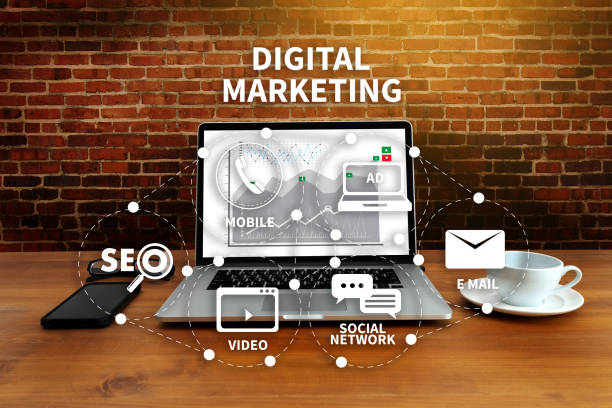
- December 6, 2024
- wallahleads@gmail.com
- 0
In the ever-changing digital landscape, businesses must constantly adapt to stay relevant. Future of Digital marketing has evolved from simple email campaigns to a vast array of innovative strategies powered by data, artificial intelligence, and social media. In this blog, we explore the future of digital marketing, highlighting key trends and actionable strategies to help businesses thrive in the competitive digital world.
Emerging Trends in Digital Marketing
Artificial Intelligence (AI) in Marketing
AI is revolutionizing how businesses interact with their audiences. Tools powered by AI can analyze customer behavior, predict trends, and automate processes like chatbots for customer support or dynamic ad placements. Embracing AI in marketing leads to smarter decisions and personalized user experiences.Voice Search Optimization
As voice assistants like Siri, Alexa, and Google Assistant grow in popularity, optimizing content for voice search is becoming crucial in Future of Digital Marketing. Marketers should focus on natural language queries and conversational keywords to rank higher in voice search results.Interactive and Immersive Content
Consumers crave engaging experiences. Interactive content like quizzes, polls, and augmented reality (AR) filters captivates audiences and increases engagement. AR and VR experiences, in particular, are reshaping how brands connect with customers.Short-Form Video Content
Platforms like TikTok, Instagram Reels, and YouTube Shorts have skyrocketed in popularity. Brands that leverage these platforms with creative, concise, and entertaining content can reach younger audiences effectively.Sustainability and Ethical Marketing
Modern consumers value transparency and ethical practices. Brands that showcase their commitment to sustainability, inclusivity, and corporate social responsibility are more likely to build loyal customer bases.
Strategies for Success in Digital Marketing
Leverage Data-Driven Insights
Data is the backbone of successful marketing campaigns. By analyzing customer data, businesses can create highly targeted ads, develop personalized messaging, and improve decision-making.Focus on Omni-Channel Marketing
A seamless customer experience across multiple platforms is key. From social media and email to your website and physical store, ensure consistent branding and messaging to engage customers at every touchpoint.Invest in Influencer Marketing
Collaborating with influencers in your niche can amplify your brand’s reach. Authentic recommendations from trusted figures resonate more with audiences compared to traditional ads.Prioritize Mobile Marketing
With the majority of online activity happening on mobile devices, optimizing for mobile-first experiences is non-negotiable. Ensure your website is mobile-responsive and invest in SMS marketing or mobile apps to reach users directly.Stay Agile and Adaptive
The digital marketing landscape evolves rapidly. Stay updated with the latest trends, experiment with new platforms, and be ready to pivot strategies based on performance metrics.
The Role of Personalization in Digital Marketing
Gone are the days of one-size-fits-all marketing. Today’s consumers expect personalized experiences that cater to their specific needs and preferences. Whether it’s an email addressing the recipient by name or a product recommendation based on past purchases, personalization builds trust and strengthens relationships.
Data plays a crucial role in this process. By analyzing user behavior and demographics, businesses can craft campaigns that feel relevant and meaningful. For example, Netflix and Spotify thrive by curating personalized recommendations, setting a benchmark for how impactful personalization can be.
Engaging Audiences Through Immersive Experiences
In the battle for consumer attention, static content often falls short. Interactive content, such as polls, quizzes, augmented reality (AR), and virtual reality (VR) experiences, is emerging as a powerful way to engage audiences. This type of content doesn’t just inform—it involves users in the experience, fostering deeper connections.
Brands can use AR filters on Instagram to let users “try on” products virtually, or deploy interactive infographics to make complex data easily digestible. This immersive approach keeps users on your platform longer, increasing the likelihood of conversions.
Conclusion
Digital marketing is no longer optional—it’s the cornerstone of modern business success. By embracing emerging trends like AI, voice search, and immersive content, and implementing data-driven strategies, businesses can stay ahead in the ever-evolving digital world.

